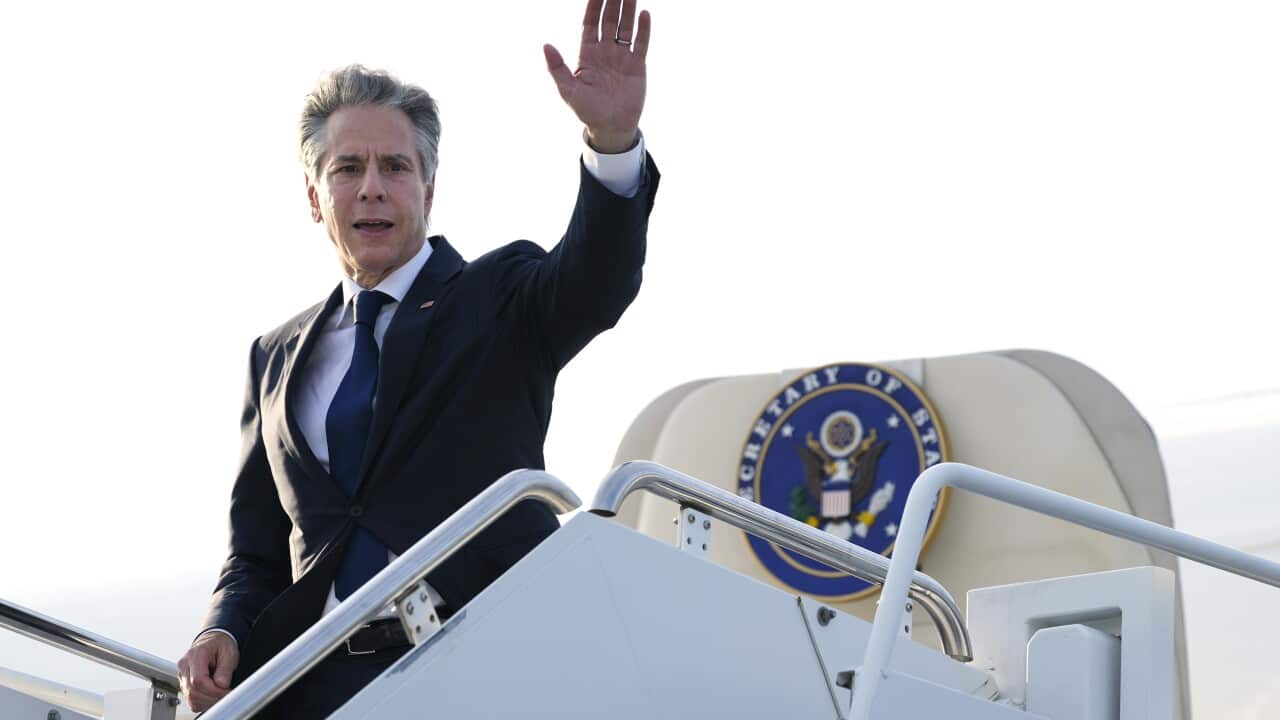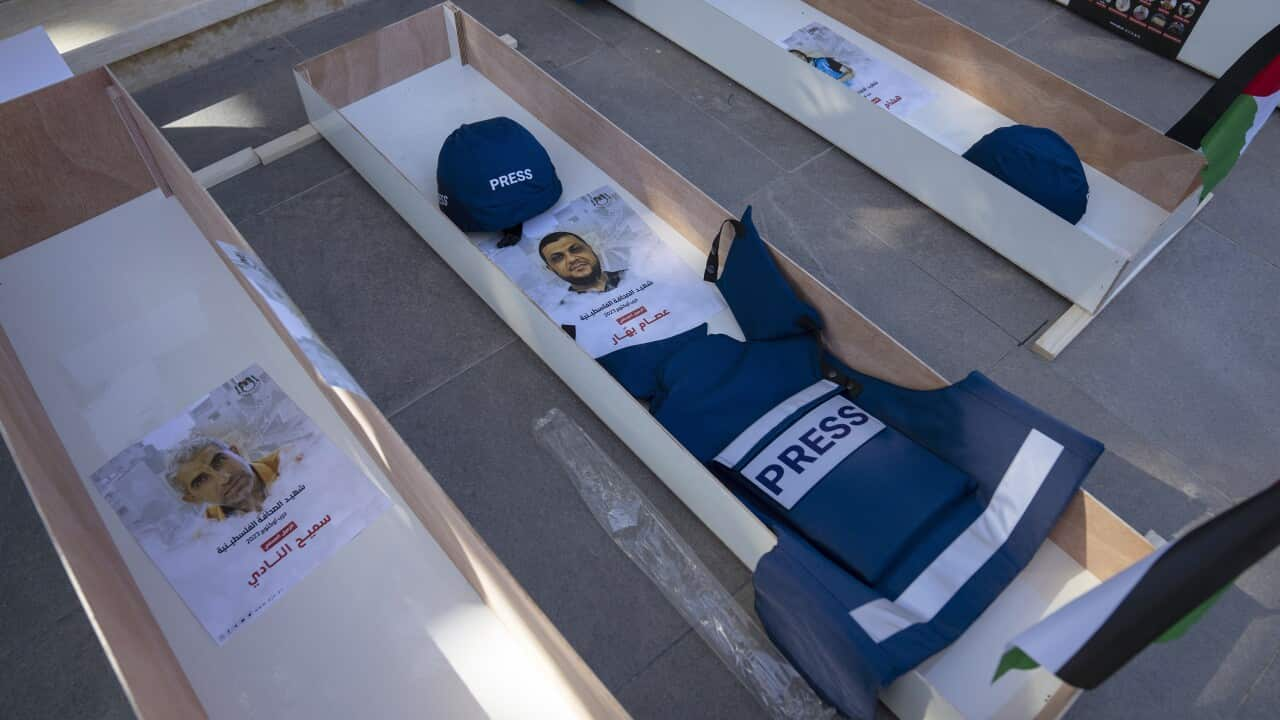Key Points
- An open letter has called for Bisan Owda's Emmy nomination for her documentary with AJ+ to be removed.
- Both the Emmys and Al Jazeera have responded to the letter, defending Owda's nomination.
- Adam Sharp, president of the organisation behind the Emmys, said the awards recognise journalistic excellence.
The Emmys have defended their decision to nominate Palestinian journalist Bisan Owda for an award, after an open letter signed by more than 150 entertainment industry professionals called for her nomination to be rescinded.
Owda is a 25-year-old journalist who has been documenting life in the Gaza Strip in the wake of
She has amassed a significant following on social media, including over 4.7 million Instagram followers.
Owda is nominated in the category of Outstanding Hard News Feature Story for an eight-minute documentary produced in collaboration with Al Jazeera’s AJ+.
The category is part of the News and Documentary Emmy Awards, set to be held in September.
The documentary — titled It's Bisan from Gaza and I'm Still Alive — references the opening line to many of her social media videos. It follows her displacement by Israeli bombardment and the experience of sheltering outside the now-destroyed .
The war between Hamas and Israel is the latest escalation in a long-standing conflict. More than 40,000 Gazans and 1,200 Israelis have been killed since October, according to local authorities.
Why is there backlash to her nomination?
The backlash to her nomination has been spearheaded by Creative Community for Peace (CCFP), a non-profit organisation. They released an open letter with the signatures of more than 150 industry leaders, including actors Selma Blair and Debra Messing.
It alleges Owda has links to the Popular Front for the Liberation of Palestine (PFLP), which is designated as a terrorist group by the US, Canada and the European Union, but not by Australia.
The letter claims Owda spoke at events run by the PFLP, and urges her nomination in the prestigious television awards be removed to "prevent glorifying a figure associated with terrorism".
CCFP executive director Ari Ingel also said the decision was "inexcusable" and "should never have happened".
How have the Emmys responded?
Adam Sharp is the CEO and President of the National Academy of Television Arts & Sciences (NATAS), the organisation behind the Emmys.
He responded to the open letter, defending the decision and highlighting how the documentary was nominated.
Sharp said the Emmys had been recognising journalist excellence for almost 50 years.
"Some of these works have been controversial, giving a platform to voices that certain viewers may find objectionable or even abhorrent," he said.
"But all have been in the service of the journalistic mission to capture every facet of the story."
According to his statement, the documentary was reviewed by two panels of independent judges.
It also addressed the allegations of Owda’s links to the PFLP, saying NATAS was aware of reports that she had spoken at events between six and nine years ago as a teenager.
"NATAS has been unable to corroborate these reports, nor has it been able, to date, to surface any evidence of more contemporary or active involvement by Owda with the PFLP organisation," the statement said.
Al Jazeera, a Qatar-based news organisation, also released a statement defending the documentary, which has been recognised by the Peabody and Edwards R. Murrow awards.
The broadcaster called the allegations "baseless", and said the push to have Owda’s Emmy nomination removed was "an attempt to deny an important perspective" on the war.
Owda, who is still posting videos from Gaza, has not responded to the letter.
What is the situation for journalists in Gaza?
Nonprofit organisation the Committee to Protect Journalists (CPJ) estimates that as of 21 August, at least 115 media workers and journalists have been killed.
The group says the Israel-Hamas war has been the deadliest period for journalists since it began collecting data in 1992.
One hundred and 10 of those journalists killed were Palestinian, three were Lebanese and two were Israeli.
Earlier this month Al Jazeera journalists Ismail al-Ghoul and Rami al-Refee were killed in an Israeli strike.
Like Owda, other journalists based in Gaza have amassed significant social media followings for their work documenting on-the-ground experiences of those living through the war.
In January, photojournalist Motaz Azaiza revealed he was being evacuated and .
He amassed nearly 18 million Instagram followers for his coverage, which included the deaths of fellow journalists.
Plestia Alaqad also received global attention for her reporting on Gaza. In November, she and her family moved to Melbourne on temporary visas, sponsored by her uncle.
Alaqad has since made several public appearances,
Both Alaqad and Azaiza continue to use their platforms to share information about the impact of the conflict on people in Gaza.













